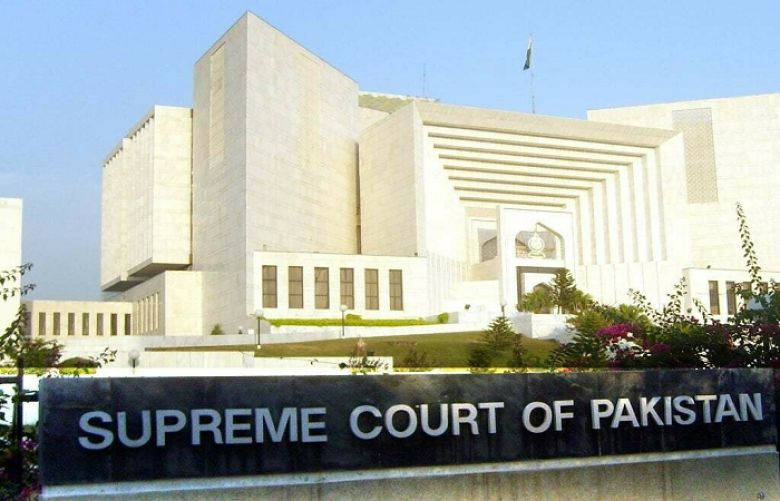The Supreme Court on Tuesday turned down a petition filed by government for formation of a full bench to hear the petitions challenging the civilian’s trial in military courts.
A six-judge larger bench, headed by Chief Justice of Pakistan (CJP) Umar Ata Bandial and comprising Justice Ijazul Ahsan, Justice Munib Akhtar, Justice Yahya Afridi, Justice Sayyed Mazahar Ali Akbar Naqvi and Justice Ayesha A Malik heard the pleas.
The pleas were filed by former CJP Jawwad S Khawaja, Aitzaz Ahsan, Karamat Ali, and PTI Chairman Imran Khan after several suspects of May 9 violence were handed over to military for trial.
Attorney-General for Pakistan (AGP) Mansoor Usman Awan, Supreme Court Bar Association (SCBA) President Abid Zuberi and others were present in the court.
During the hearing, the AGP requested the court to establish a full court bench to hear the petitions. In reply, the CJP rejected the plea due to unavailability of judges. The top court remarked that it was not possible to entertain the plea this time as judges were on summer vacation.
Later, CJP Bandia rejected the plea and adjourned the hearing till tomorrow (July 19).
At the outset of the hearing, Abid Zuberi came to the rostrum and said he would assist the apex court on five points. At which, the CJP welcomed his views.
A day earlier, the federal government submitted its reply to the top court and said the trial of those involved in attacking military installations was an “apt and proportionate response” under the constitutional framework and statutory regime.
“Violence against the military, defence installations and establishments was a direct attack against the national security of Pakistan and therefore prejudicial to security, interests and defence of Pakistan,” the government said in its response.
“Therefore, to create deterrence in respect of such attacks, our constitutional framework allows perpetrators of such vandalism and violence to be tried under PAA,” it said.
At the previous hearing, the AGP informed the bench that the cases against the civilians arrested after May 9 episode were still at the investigation stage. He also assured that no civilian would be trial under charges that attracts either death penalty or a lengthy imprisonment.







